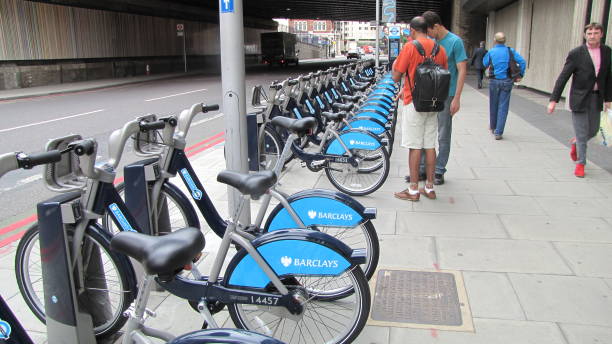Green Travel: Eco-Friendly Tips and Products for Sustainable Adventures
This post contains affiliate links. I may earn a commission at no extra cost to you if you make a purchase. Note that I’m not a health or outdoor safety professional, so further research is advised. Your support keeps Outdoors A-Z running—thank you! Read the full disclosure.. Read the full disclosure here.
In recent years, the concept of green travel has gained significant attention as people become more conscious of their environmental impact. Green travel, also known as eco-friendly or sustainable travel, involves making choices that minimize harm to the environment and support local communities. By adopting eco-conscious practices and using environmentally friendly products, travelers can enjoy fulfilling adventures while leaving a positive impact on the planet. In this article, we will explore various tips and products for green travel, helping you embark on sustainable adventures that align with your values.
Table of Contents
Why is green travel important?
Green travel is important for several reasons. Firstly, it helps to preserve the natural beauty and cultural heritage of destinations for future generations. By traveling responsibly, we can minimize the negative impact on ecosystems, wildlife, and local communities. Secondly, green travel reduces our carbon footprint, mitigating climate change and promoting environmental sustainability. Lastly, choosing eco-friendly options often enhances the travel experience, allowing for more authentic interactions with local cultures and environments.
Eco-friendly transportation options

Sustainable transportation choices
When it comes to green travel, transportation plays a crucial role. Opting for sustainable transportation choices can significantly reduce carbon emissions and promote environmentally friendly travel.
Public transportation
Using public transportation, such as buses, trains, or trams, is an excellent way to minimize your carbon footprint while exploring a destination. Public transport systems are designed to be efficient and often provide convenient connections to popular tourist attractions. Not only does this reduce traffic congestion and air pollution, but it also allows you to immerse yourself in the local culture and interact with fellow travelers.
Cycling and walking
For shorter distances, consider cycling or walking instead of relying on motorized transportation. Many cities have bike-sharing programs, making it easy to rent bicycles and explore at your own pace. Additionally, walking tours provide a unique opportunity to discover hidden gems and experience the local atmosphere firsthand while staying active and reducing environmental impact.
Electric vehicles
If you prefer the convenience of private transportation, consider renting or using electric vehicles (EVs). Electric cars produce zero tailpipe emissions, reducing air pollution and greenhouse gas emissions. As the availability of EV charging stations continues to grow, it’s becoming increasingly feasible to explore destinations using electric vehicles.
Choosing eco-friendly accommodation

Environmentally conscious lodging
Selecting environmentally conscious accommodation is another important aspect of green travel. Many hotels, resorts, and lodges have implemented sustainable practices to minimize their ecological footprint and contribute positively to the local community.
Green hotels and resorts
Green hotels and resorts focus on energy and water conservation, waste reduction, and the use of environmentally friendly materials. These establishments often have eco-certifications, such as LEED (Leadership in Energy and Environmental Design) or Green Key, ensuring they meet specific sustainability standards. Some green hotels even incorporate renewable energy sources, such as solar panels or geothermal systems.
Eco-lodges and sustainable stays
Eco-lodges and sustainable stays provide unique accommodations that blend harmoniously with nature. These establishments are often built using locally sourced, eco-friendly materials and employ environmentally friendly practices. They aim to create minimal impact on the environment while offering an immersive experience in natural surroundings.
Camping and glamping
For those seeking a closer connection with nature, camping and glamping (glamorous camping) are ideal options. Choose campsites that follow sustainable camping principles, such as leaving no trace and using biodegradable products. Glamping sites provide luxurious accommodations while maintaining a low environmental impact, often featuring eco-friendly amenities and practices.
Sustainable packing and gear

Eco-conscious travel essentials
Packing sustainably can significantly reduce waste and minimize your ecological footprint during travel. Consider the following eco-conscious travel essentials:
Sustainable luggage and bags
Invest in durable, eco-friendly luggage made from recycled or organic materials. Look for brands that prioritize sustainable manufacturing processes and fair trade practices. Additionally, using reusable shopping bags and daypacks instead of single-use plastic bags helps reduce plastic waste.
Reusable water bottles and food containers
Carrying a reusable water bottle and food container is essential for minimizing waste. Opt for BPA-free water bottles made from materials like stainless steel or glass. Similarly, using reusable food containers for snacks and meals reduces the need for disposable packaging and helps conserve resources.
Eco-friendly toiletries and personal care products
Choose eco-friendly toiletries and personal care products that are free from harmful chemicals and come in biodegradable or recyclable packaging. Look for natural, organic alternatives for items such as shampoo, conditioner, soap, and sunscreen. Using solid toiletries instead of liquids also saves space and reduces the risk of spills.
Supporting local communities and businesses

Sustainable tourism practices
Supporting local communities and businesses is an integral part of green travel. Engaging in sustainable tourism practices helps to preserve cultural heritage, protect natural resources, and promote economic development.
Authentic experiences and cultural immersion
When planning your itinerary, prioritize authentic experiences that allow you to connect with local cultures and traditions. Participate in community-based tourism activities, visit local markets, or attend cultural events. By doing so, you contribute directly to the local economy and gain a deeper understanding of the destination.
Locally sourced food and products
Choose restaurants and eateries that prioritize locally sourced, organic ingredients. By opting for locally produced food, you support local farmers and reduce the carbon footprint associated with long-distance transportation. Similarly, consider purchasing locally made handicrafts and products as souvenirs, supporting local artisans and promoting traditional craftsmanship.
Fair-trade souvenirs and crafts
When buying souvenirs, look for fair-trade products that ensure artisans and workers receive fair wages and operate in safe conditions. Fair-trade organizations promote social and environmental sustainability, providing economic opportunities to marginalized communities.
Responsible wildlife encounters

Ethical wildlife tourism
Engaging in responsible wildlife encounters is essential for protecting and conserving animal species. It is crucial to avoid activities that exploit or harm wildlife and instead opt for experiences that promote conservation and education.
Wildlife conservation and protection
Support wildlife conservation initiatives by visiting sanctuaries, rehabilitation centers, or national parks that prioritize the well-being and conservation of animal species. Choose establishments that prioritize ethical treatment, do not engage in animal exploitation, and contribute to conservation efforts through education and research.
Responsible animal sanctuaries and rehabilitation centers
If you choose to visit animal sanctuaries or rehabilitation centers, ensure they have a genuine commitment to animal welfare and conservation. Avoid establishments that allow direct contact with wild animals or engage in practices that may harm their well-being.
Avoiding activities that exploit animals
Avoid participating in activities that exploit animals for entertainment, such as elephant riding, swimming with dolphins, or visiting performing animal shows. These practices often involve cruelty and can have a detrimental impact on animal welfare.
Minimizing environmental impact

Leave-no-trace principles
Adhering to leave-no-trace principles is essential for minimizing your environmental impact while traveling. Follow these guidelines to ensure you leave destinations as you found them:
Proper waste management
Dispose of waste responsibly by using designated recycling bins and avoiding littering. Carry a reusable bag for trash and dispose of it properly at the end of each day. If you’re in an area with limited waste management infrastructure, pack out your waste to ensure it doesn’t harm the environment.
Energy and water conservation
Conserve energy by turning off lights, air conditioning, and other electronic devices when they’re not in use. Be mindful of water consumption, taking shorter showers and turning off taps while brushing your teeth or washing dishes. Reusing towels and linens in accommodations also helps conserve water and reduce laundry energy.
Offset carbon footprint
Consider offsetting your carbon footprint by participating in carbon offset programs. These programs invest in projects that reduce greenhouse gas emissions, such as renewable energy or reforestation initiatives. Calculate your carbon footprint and choose reputable offset providers to ensure your contributions have a positive impact.
Final Thoughts
Embracing green travel practices and using eco-friendly products is a powerful way to create sustainable adventures. By choosing sustainable transportation, eco-friendly accommodations, responsible wildlife encounters, and minimizing your environmental impact, you can contribute to the preservation of the planet’s natural beauty and cultural heritage. Green travel allows us to explore the world while leaving a positive footprint and supporting local communities. So, pack your eco-conscious essentials and embark on a journey filled with unforgettable experiences, all while being a responsible global citizen.
FAQs
How can I find green hotels and resorts for my eco-friendly travel?
There are various resources available online that list and review green hotels and resorts. Look for certifications like LEED or Green Key, and read reviews from sustainable travel websites or blogs.
Are there any eco-friendly alternatives for single-use toiletries?
Yes, many brands now offer solid toiletries, such as shampoo bars and soap bars, which eliminate the need for plastic bottles. Additionally, you can opt for refillable toiletry containers and choose products with minimal packaging.
How can I ensure my wildlife encounters are ethical and responsible?
Research wildlife sanctuaries and rehabilitation centers before visiting to ensure they prioritize animal welfare and conservation. Avoid activities that involve direct contact with wild animals or exploitation for entertainment purposes.
What are some simple ways to practice leave-no-trace principles during outdoor activities?
Carry a trash bag for your waste and dispose of it properly. Leave natural items and artifacts where you found them, respect wildlife habitats, and avoid leaving any signs of your visit.
How can I calculate my carbon footprint and offset it?
Several online calculators can help you estimate your carbon footprint based on your travel, energy consumption, and lifestyle choices. Once you have calculated it, you can choose reputable carbon offset programs or organizations to make contributions and support carbon reduction projects.















